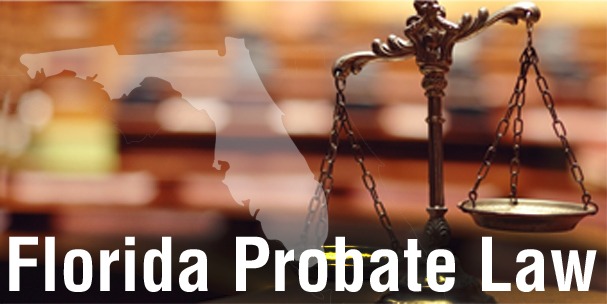Florida Probate Law
 The probate is a process supervised by the court, which deals with transferring the property of the deceased to its legal heir. As per law, the assets are first used to pay the expenses of the probate proceedings, then to pay off any outstanding debts on the decedent and the balance is then distributed among his heirs or beneficiaries.
The probate is a process supervised by the court, which deals with transferring the property of the deceased to its legal heir. As per law, the assets are first used to pay the expenses of the probate proceedings, then to pay off any outstanding debts on the decedent and the balance is then distributed among his heirs or beneficiaries.
The probate process varies from state to state. Florida too has its specific probate rules that define the guidelines for the process in the state. There are three ways in which you can file a probate in the state of Florida.
Transferring assets without probate
In case the deceased left behind a very small fortune, the beneficiaries are allowed to inherit the property without any probate proceedings. If the beneficiary has paid all of the final expenses of the decedent such as final illness and funeral costs, he has the right to get reimbursed for the same from the deceased property, provided the two qualifications are met:
- The decedent’s property does not involve any real estate.
- The fortune left by the deceased is not being claimed by the creditors for paying of any outstanding debts and is not exceeding the amount of the final expenses paid by the beneficiary.
To avail the reimbursement, the beneficiary is required to fill a ‘Disposition of Personal Property without Administration’ form that is available on the websites of several circuit courts of Florida. You are also required to submit itemized receipts and bills corresponding to the medical expenses that you have made in the final 6 months of the decedents life and also for his funeral.
Transferring assets by Summary Administration
The beneficiary is qualified for this type of probate, if the decedent had died at least two years back or the value of the probate estate (excluding the non probate property) is not more than $75,000. The non probate property can be distinguished as:
- Assets that are attributed to a living trust.
- Property jointly held by a couple, such as a joint savings account, or a house that had shared tenancy by both of them.
- An asset that has already been designated to the beneficiary for example a life insurance policy.
The law requires the beneficiary to fill up a ‘Petition for Summary Administration’ form and testify that there are no outstanding debts against the property.
Transferring assets through Formal Administration
A regular probate proceeding involves the beneficiary filing a claim petition to the deceased property, in the local circuit court. The court issues ‘Letters of Administration’ to the representative of the estate. The Florida probate rules state that the beneficiary is also required to hire a lawyer or an attorney unless he is the one and only beneficiary of the property. The property is then distributed as per the clauses in the will left by the decedent. However, in the event of the absence of a will, the Florida intestacy law has the right to determine how the property would be distributed among the beneficiaries.
Florida as a state has also set out statutory fee scales for the lawyers involved in the proceedings of a probate, making it easier for the people to estimate the legal expenses of such a proceeding. For proficient legal advice in Volusia County, New Smyrna Beach, Port Orange, Daytona and surrounding areas, visit https://simmslawfirm.com/.
To contact Florida attorney Debra G. Simms, P.A. in Port Orange or New Smyrna Beach, FL please call 877.447.4667.


